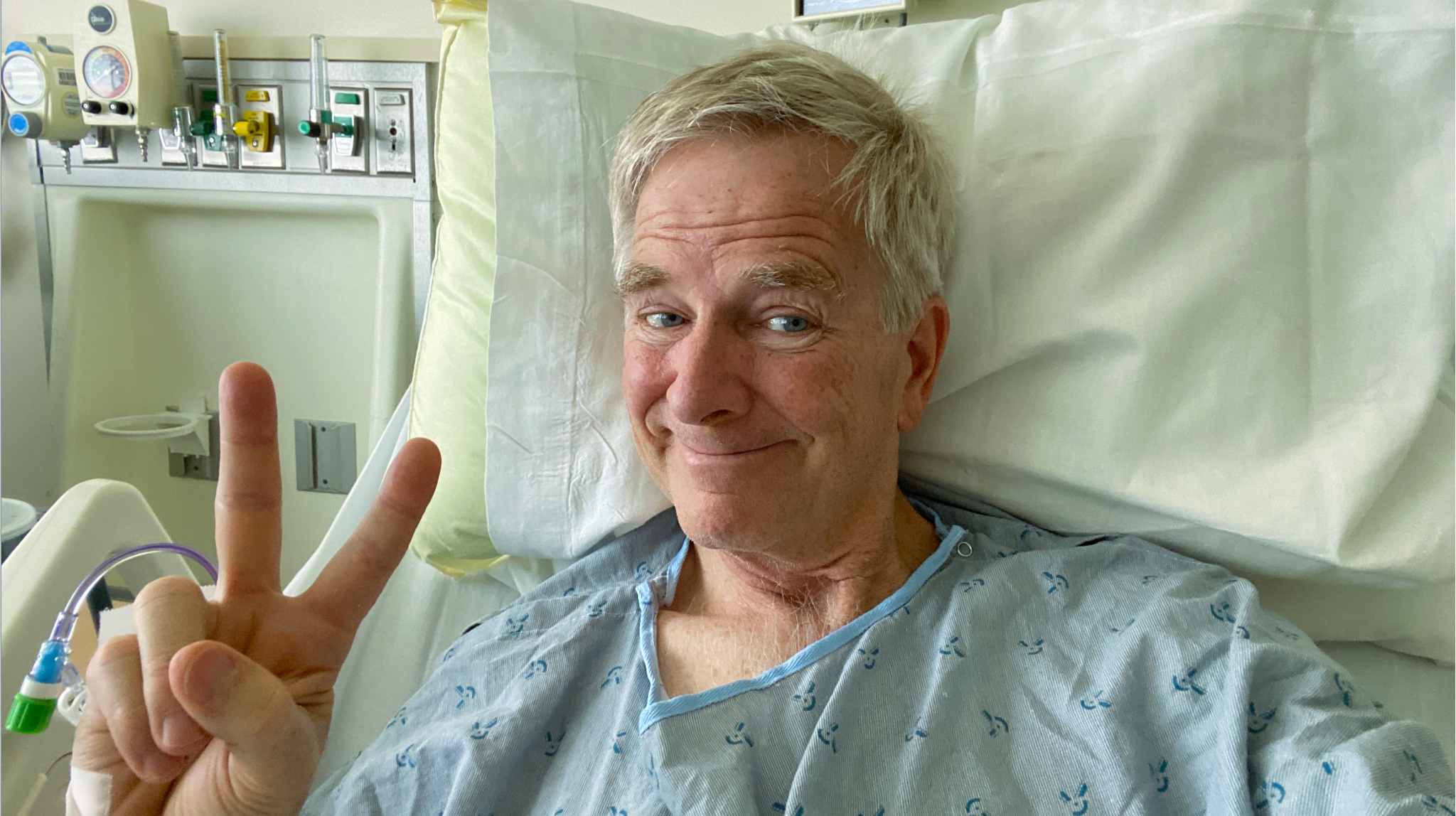Rick Steves Shares His Prostate Cancer Journey: A Message for Men to Listen to Their Bodies

Travel expert and TV host Rick Steves is known for exploring castles in Germany, canals in Venice, and cozy cafés in France. But in August of 2024, he found himself on a very different kind of journey—one that didn’t require a passport but instead called for him to prioritize his health.
The diagnosis he didn’t see coming
Rick was diagnosed with prostate cancer after a routine visit to a new primary care doctor. During the routine visit, his doctor ordered a prostate-specific antigen (PSA) blood test. A PSA test checks how much PSA protein your prostate is releasing. The chance of having prostate cancer goes up as the PSA level goes up. Rick’s PSA level came back very high.
Rick thought about any possible symptoms he might have missed. He noticed he was making more frequent trips to the bathroom recently. He assumed that was happening because he was drinking more water to stay healthy and hydrated.
“I learned the hard way (almost the very hard way) about the importance of men being tuned into their bodies — especially older men like me, with a history of cancer in the family," Rick said.
In the US, prostate cancer is the most common cancer in men, after skin cancer. In fact, about one in eight men will be diagnosed with prostate cancer during their lifetime. Most men who are diagnosed are over the age of 50. Rick was 69 when he was diagnosed.
Throughout his journey, Rick stayed hopeful and kept a positive outlook, but his focus shifted from healthy habits to survival. In October 2024, Rick underwent a prostatectomy, a surgery to remove the entire prostate in hopes of lowering the chances of recurrence. Preparing for the procedure, Rick’s biggest fear was that the cancer had spread.
After his surgery, his doctor said they could be cautiously hopeful until the PSA level was repeated. While Rick’s initial PSA score was a 55, two months after surgery, his PSA level had lowered to 0.09.
In February 2025, Rick got the best news yet. “You can now consider yourself cancer-free,” his doctor told him.
Healing, advocacy, and taking control of his health
Now, Rick is taking a proactive approach to his health. This year, he has been checking off important follow-ups one by one: a colorectal cancer screening, a skin exam, and physical therapy to help him heal. He will also get his PSA levels checked twice a year until his doctor clears him for an annual PSA level check.
“I’m energized by my clean bill of health and busier than ever,” Rick said.
Rick is using his platform to speak out about his experience and advocate for early detection. His story is an important reminder to know your family history and ask questions. Through his cancer journey, Rick uncovered that both his uncle and his dad had prostate cancer at his age.
From his Facebook page to The New York Times, Rick is working to share his story. He has been encouraged by the positive response, “People care. And when you go public, people come out of the woodwork to share their own experiences with cancer and to help and support you,” said Rick.
These days, Rick is back on the road filming his show, Rick Steves’ Europe, and updating his best-selling series of guidebooks. His energy is returning, and so is his sense of adventure. His story tells us that recovery is not just about getting back to normal; it is about building a stronger, healthier future.
His message is clear: pay attention to your body, know your risk, and ask your doctor questions, including what cancer screening tests are recommended for you. It could save your life.
Resources from the American Cancer Society
- Reviewed by

Reviewed by the American Cancer Society communications team.



